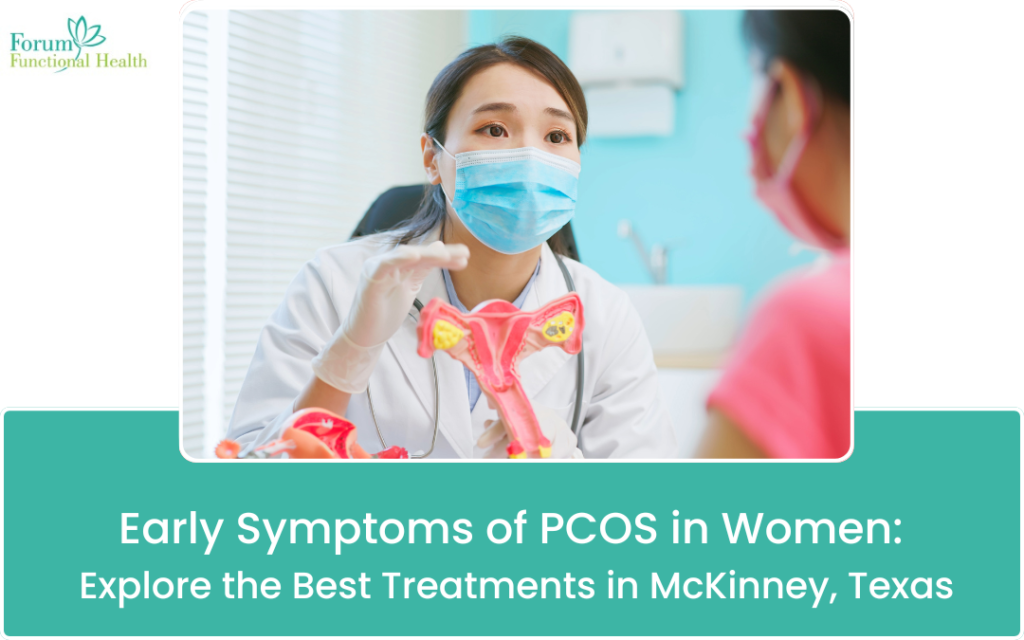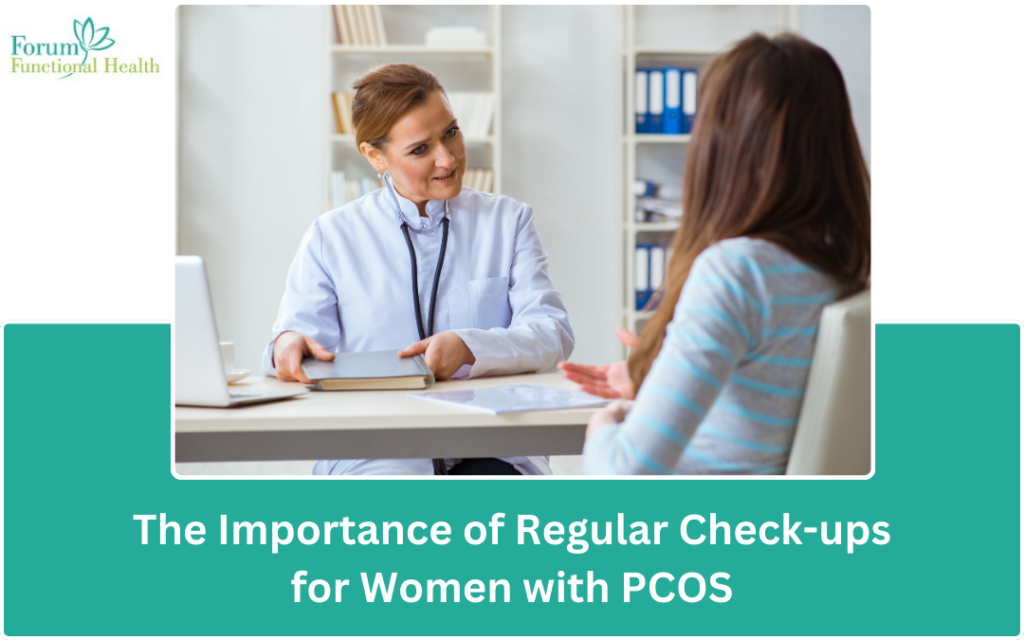How to Lose Menopause Belly Fat: Choosing the Best Weight Loss Management in Texas

Menopause brings a host of changes, including the unwelcome addition of belly fat. For many women, this can be a distressing development, impacting both self-esteem and health. If you’re looking to shed menopause belly fat and reclaim your body, choosing the right weight loss management program is crucial. In Texas, the Forum Functional Health Center […]
Early Symptoms of PCOS in Women: Explore the Best Treatments in McKinney, Texas

Polycystic Ovary Syndrome (PCOS) is a common hormonal disorder that affects many women of reproductive age. Early detection and treatment are crucial for managing symptoms and preventing long-term complications. In McKinney, Texas, the Forum Functional Health Center offers comprehensive care tailored to the unique needs of women with PCOS. This article will explore the early […]
The Role of Diet and Exercise in Managing PCOS Symptoms

Polycystic Ovary Syndrome (PCOS) affects millions of women worldwide, causing hormonal imbalances that can lead to a range of symptoms, including irregular periods, infertility, weight gain, and more. While there is no cure for PCOS, lifestyle modifications, particularly focusing on diet and exercise, can play a crucial role in managing its symptoms and improving overall […]
The Importance of Regular Check-ups for Women with PCOS

Polycystic Ovary Syndrome (PCOS) is a common hormonal disorder affecting women of reproductive age. Characterized by irregular periods, excessive androgen levels, and cysts in the ovaries, PCOS can lead to various complications, including infertility, diabetes, and heart disease. While managing PCOS can be challenging, regular check-ups play a pivotal role in monitoring and addressing its […]
Understanding How PCOS Affect Your Fertility

[et_pb_section fb_built=”1″ admin_label=”section” _builder_version=”3.0.47″][et_pb_row admin_label=”row” _builder_version=”3.0.47″ background_size=”initial” background_position=”top_left” background_repeat=”repeat”][et_pb_column type=”4_4″ _builder_version=”3.0.47″ parallax=”off” parallax_method=”on”][et_pb_text admin_label=”Text” _builder_version=”3.0.47″ background_size=”initial” background_position=”top_left” background_repeat=”repeat”] Polycystic Ovary Syndrome (PCOS) is a common hormonal disorder affecting women of reproductive age, with significant implications for fertility. If you’re navigating PCOS and its impact on your ability to conceive, it’s essential to understand how […]
